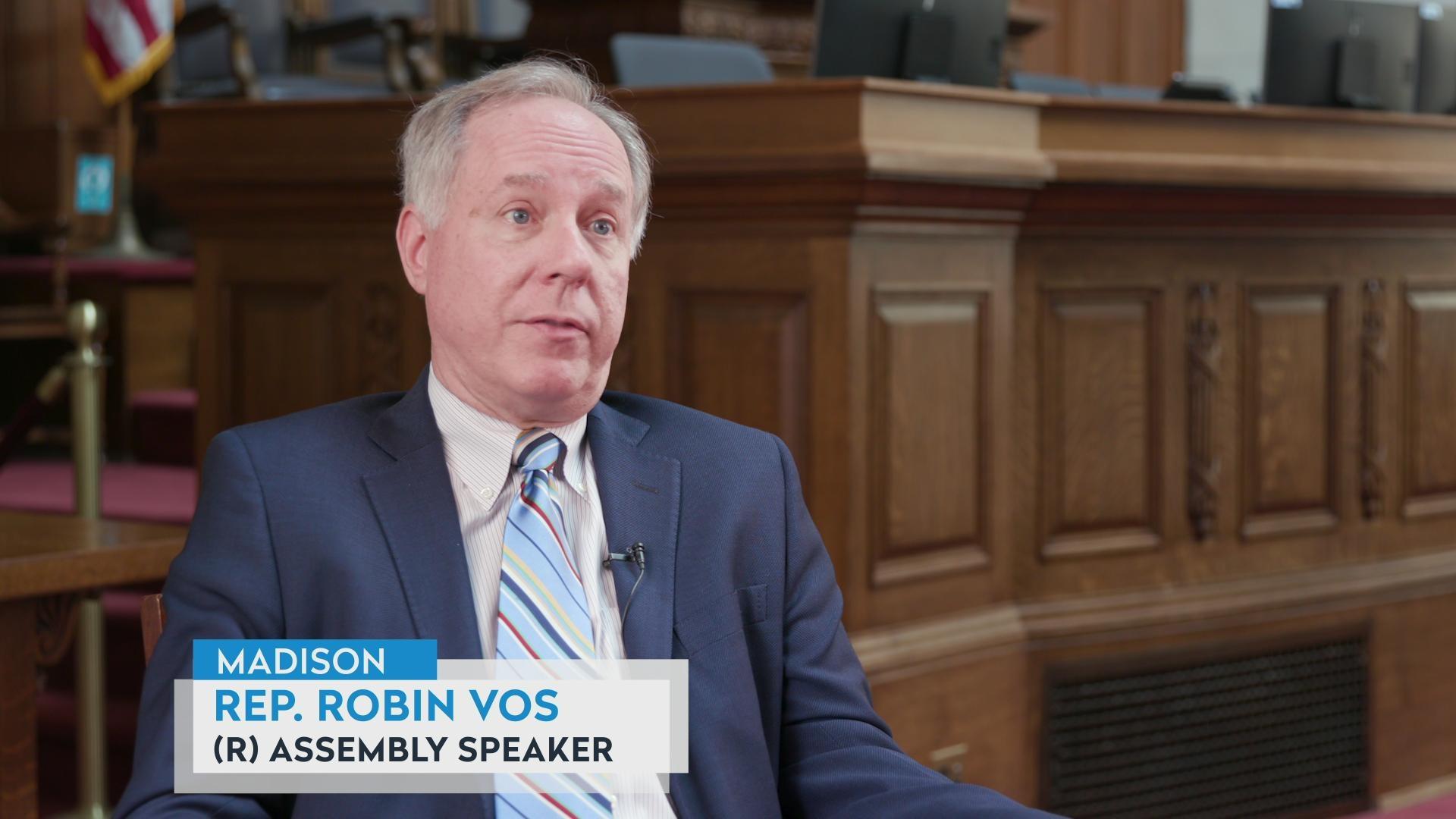Frederica Freyberg:
We return now to the crisis at the southern U.S.-Mexico border, with earlier this week, a father and daughter died trying to cross the Rio Grande and a photo of their bodies has sparked nationwide outrage and urgency. U.S. Senator Ron Johnson, chairman of the Homeland Security Committee, gave an impassioned speech calling for action.
Ron Johnson:
I didn’t have time to have the picture blown up but we’ve all seen it of Oscar Alberto Martinez Ramirez and his 23-month old daughter Valeria. Now I realize tragedies occur all over this country, all over the world. I don’t want to see another picture like that on the U.S. border. I hope that picture alone will catalyze this Congress, this Senate, this committee, to do something.
Frederica Freyberg:
The Senate and House butted heads over two different versions of emergency spending packages for $4.6 billion in humanitarian aid at the border, ahead of a deadline for current aid to expire. By Thursday afternoon, the Democratically-controlled House conceded to pass the Senate’s version, leaving out measures of accountability for the treatment of migrants, including children. Local immigration attorneys are splitting their time between Wisconsin and Mexico, working with asylum seekers, women, children and separated families. One of those attorneys is Erin Barbato, Director of the Immigrant Justice Clinic at the UW Law School, who told us, never in my wildest nightmares did I think that this type of work would be necessary. She joins us now. Thanks very much for being here.
Erin Barbato:
Thank you for having me.
Frederica Freyberg:
So what’s your reaction to the emergency aid toward issues at the border?
Erin Barbato:
Well, I’m glad that there is action in terms of funding emergency aid at the border but incredibly disappointed that none of the wording within the bill indicates that there will be direct relief or any promises to children and the needs of families that are detained near the border.
Frederica Freyberg:
Because where is that kind of aid needed most and how?
Erin Barbato:
I think what we’ve learned from the recent news and from the work that I do, seeing children in detention centers without proper food or clothing or hygiene products is unconscionable, and we need to address that first. This is happening on U.S. soil. It should not be happening anywhere in the world.
Frederica Freyberg:
Now as Director of the Immigrant Justice Clinic at the UW Law School, along with doing work at Wisconsin immigrant detention facilities, your group travels to border facilities and into Mexico, where asylum seekers have to wait for the duration of their immigration proceedings. What do you do there with these migrants?
Erin Barbato:
So we do two different types of trips. One is to the detention center where families, mothers and their children are detained. I also recently traveled to Tijuana to work with people seeking asylum that are either stuck in Tijuana or waiting to present themselves at the border in a lawful manner to Custom Border Protection. Oscar and Valeria were two people that were waiting on what’s called the Migrant Protection Protocol.
Frederica Freyberg:
And those are the kinds of people that you work with?
Erin Barbato:
It is. When we were in Tijuana, we met with a lot of the families that were recently placed on the Migrant Protection Protocol, otherwise known as remain in Mexico, where these families are forced to remain in Mexico during the pendency of their asylum process.
Frederica Freyberg:
Why would someone be so desperate as to just decide not to remain in Mexico and try to make a go for it over the river?
Erin Barbato:
Well, a lot of these families are fleeing political violence as well as gang violence in their home country. And the gang violence and the gangs do not stop across borders. So many of these families still have the same fears in Mexico that they do in their home country. And so they’re left with the option of waiting in Mexico for months to process in the United States or oftentimes it’s a matter of life or death, so their only choice is to attempt to cross illegally in a very dangerous manner.
Frederica Freyberg:
What are the conditions like for those people in Mexico waiting?
Erin Barbato:
You know, I wasn’t able to see any of the shelters that were in Tijuana. We didn’t visit those. We worked directly with an organization and worked in their offices. From what we learned from the people I worked with was that oftentimes the shelters were full. They had no way of paying for shelter while they’re remaining there, and the conditions there are, again, inhumane.
Frederica Freyberg:
And your work also takes you, again, to the border with Texas at a Texas facility, and what do you do there?
Erin Barbato:
So there I travel with students down to the detention center in Dilly which houses up to 2400 women and children. At that facility, we work to help women and children prepare for their credible fear interviews. That’s what we did last year when we went. We’re heading back in August and it may be different.
Frederica Freyberg:
Do you expect the conditions there to be different?
Erin Barbato:
I would assume that the conditions in the facility will be the same. However, the families that will be there, there are some rumors that the families that are being housed there are people that will be picked up by immigration and then placed there prior to deportation.
Frederica Freyberg:
You know, we talk with people including Senator Ron Johnson and he suggests that many of these people that are fleeing from Central America, trying to make it in to the United States, are criminals, sex traffickers, drug dealers. What do you say to that?
Erin Barbato:
You know, I think that’s a very short-sighted view of the individuals that are seeking relief. The people I work with are families. They are unaccompanied minors. There are children separated from their families by our government. The people that I work with and the people that I’ve met in Mexico, in Dilly, they’re all seeking relief from persecution in their home country.
Frederica Freyberg:
Erin Barbato, thanks very much.
Erin Barbato:
Thank you for having me.
Search Episodes
News Stories from PBS Wisconsin

Donate to sign up. Activate and sign in to Passport. It's that easy to help PBS Wisconsin serve your community through media that educates, inspires, and entertains.
Make your membership gift today
Only for new users: Activate Passport using your code or email address
Already a member?
Look up my account
Need some help? Go to FAQ or visit PBS Passport Help
Need help accessing PBS Wisconsin anywhere?

Online Access | Platform & Device Access | Cable or Satellite Access | Over-The-Air Access
Visit Access Guide
Need help accessing PBS Wisconsin anywhere?

Visit Our
Live TV Access Guide
Online AccessPlatform & Device Access
Cable or Satellite Access
Over-The-Air Access
Visit Access Guide
 Passport
Passport


















Follow Us